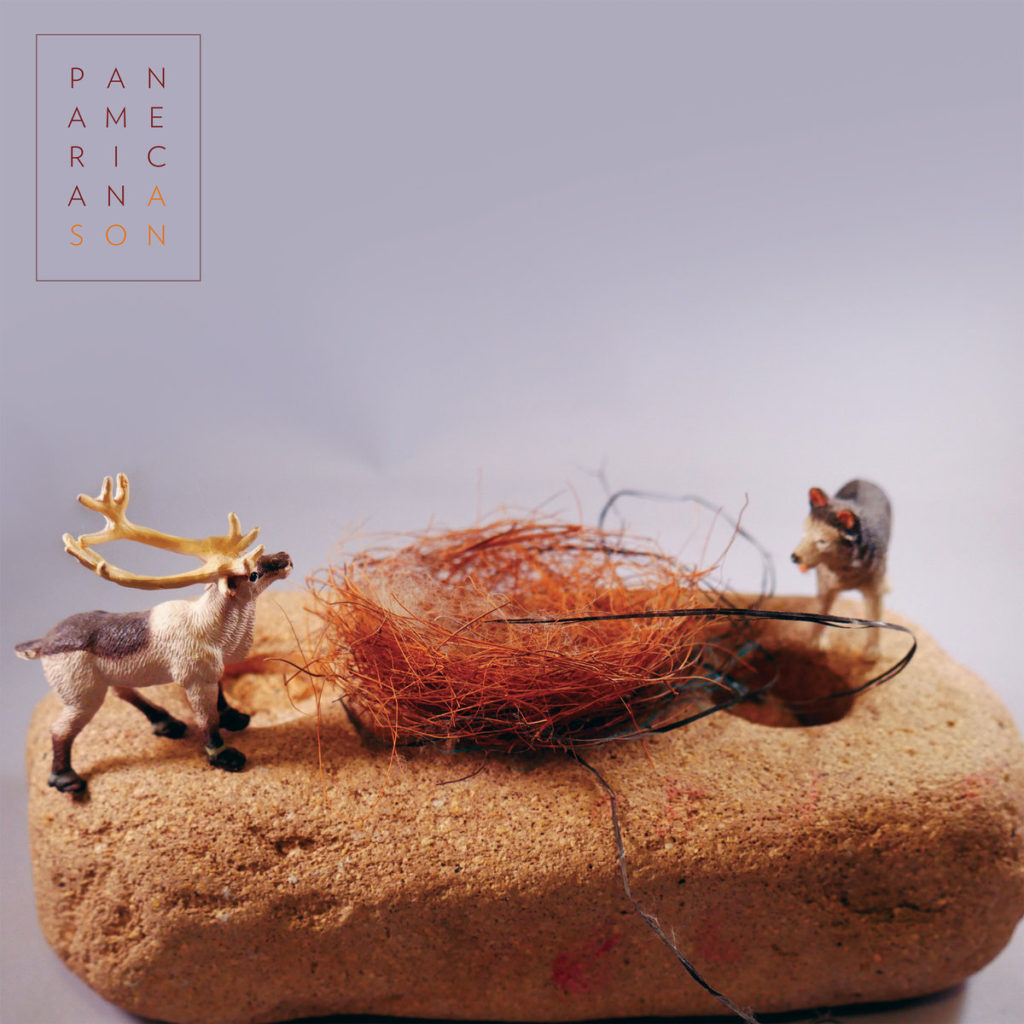Fifteen years ago, the definition of ambient music, even the initiation to ambient music, was very different. But, even by the standards of the day, Untitled was an odd duck.
Crafted by experimentalists Jon Mueller, Bhob Rainey and Jim Schoenecker, the four-“song” outing, sealed in an orange jacket adorned with a drawing of a toaster, was a study in absences. And, man, there was a lot of it.
“Not much happens between the beginning and end of this untitled collaboration between Jon Mueller, Bhob Rainey, and Jim Schoenecker, and, believe me, that’s an understatement. While the record’s liner notes list percussion, saxophone, and synthesizer as the key musical elements on the disc, what’s really on display here is space and a lot of it.”
That’s me writing in Delusions of Adequacy on Sept. 6, 2004. The thing, as you can tell, totally vexed me. I cited film structuralism, comparing its stasis to the faux-narratives of Andy Warhol’s transfixing Empire. (For those getting high-minded, remember what a friend at the time told me: “Warhol also made a film called Blowjob.”) In the end, I cast it off as so much noodling – in other words, art without a paintbrush, music without a sound.
Listening to Spheruleus’ new record on the ever-inventive label Lost Tribe Sound – Light Through Open Blinds, out July 26 – I find myself compelled to rethink my assessment then, as well as all of my preconceived notions about space and silence.
On the record, Spheruleus, a.k.a. UK sound-constructor Harry Towell, sought to document the sound of the home he and his wife bought in 2016. What results from the experiment is a fascinating study in found sound, and a rebuke to those who might write off sparse work as unfinished or roughly sketched.
Take “Deeds,” the seventh track on the record. The origins of the percussive element, as on much of the record, is unclear. It could be a tap on a windowsill, looped to great effect. It could be a spoon dropping into a ceramic sink. What’s evident is that it’s not a drum kit. But Towell, who keeps it feeling wonderfully accidental, is masterful at not only wringing maximum percussive thrust from the pitter-patter, but lending it a kind of contemporary backbone. (“Colossian,” which features a maraca-like shake over its basketball-thudding-on-wooden-floor beat, even hints at R&B. “Winnowers” clips each sparse, trebly beat tight, suggesting beatboxing.)
On other tracks, it’s the absence of form that’s fascinating. Look no further than the title track, which opens the 10-track record, whose looped percussive element sounds like wood on wood and who generates an unusual heat not from its arbitrarily strummed acoustic guitar but the most subtle hint, somewhere in the deep background, of other ambient noises – maybe a synth, a wind passing over a windowpane, a finger scraping over the surface of something rough, the occasional flicker of a piano key. On “Conserving Warmth,” the guitar returns but what begs attention is the occasional, lingering synth, the edited sound of guitar amplification being turned on and off. The song’s most mesmerizing detail? The edit itself to “natural” sounds, the way things quickly fade to a seam when cutting or splicing between interesting bits. It’s really surprising how captivating this thing can be.
Now, I’m not going back on my assessment on Untitled. I doubt even Towell could make a 26-minute version of one of these tracks – Untitled featured two of them – really sing. (The running times here are not epic; only one song runs past four minutes.) But Towell does a truly admirable job at redefining listeners’ sense of how a sound-bed or environment can be built out of found sounds. It’s downright painterly. That, if nothing else, demands that adventurous listeners go tracking this down. Whether or not it’s an accurate depiction of Towell’s abode is for him and his wife to decide. What I know is that this stuff is far from empty. It’s sparse but teeming with context. – Justin Vellucci, MusicTAP, June 27, 2019
-30-



